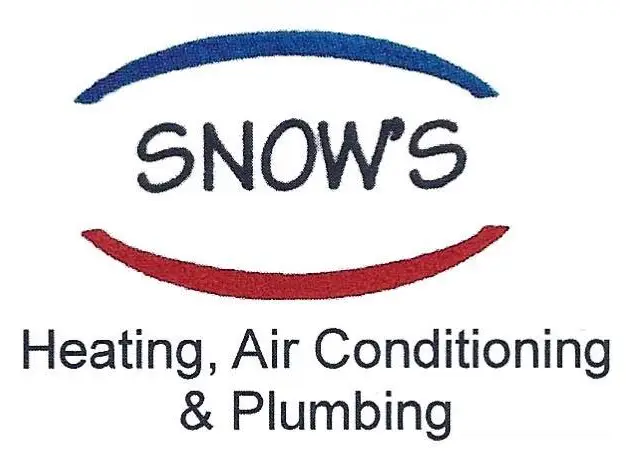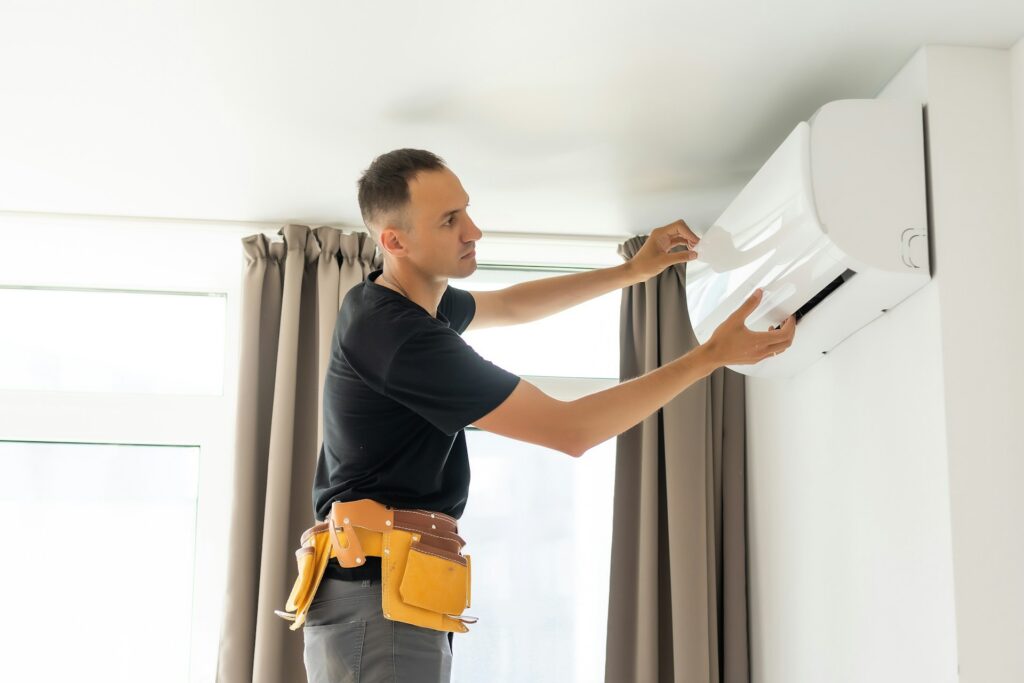During the summer in Huntington, your AC system becomes one of the most important systems in your home. When it’s working as it should, it helps keep your house comfortable and consistent. But if something seems off, like a sudden shutdown or airflow issues, your AC is likely trying to communicate a problem. Most modern systems come equipped with digital displays or lights that show specific error codes, but without knowing what these codes mean, it can feel like trying to read a foreign language.
Understanding the meaning behind common AC error codes can help you identify a problem early, avoid further damage, and explain the issue clearly when calling for help. While some codes are harmless or a simple reminder for basic maintenance, others can point to serious equipment failures that require immediate attention. Learning what these alerts mean is a practical way to stay in control of your home’s comfort and make smarter decisions when something goes wrong.
Common AC Error Codes and Their Meanings
AC units throw error codes for all kinds of reasons, from airflow problems to refrigerant issues. Though specific codes can vary between models, many brands use similar error labels for shared problems. Paying attention to what your system is trying to tell you can help you avoid larger issues down the road.
Here are several common AC error codes and what they generally indicate:
– E1 or E2: These usually point to issues with the system’s sensors. A faulty temperature sensor or communication gap between internal parts could prevent the unit from operating properly.
– E5: Often tied to voltage problems or protection mode. Your unit might shut off to avoid damage from power issues.
– F0: This might mean the refrigerant level is low or there’s a leak somewhere in the system.
– P1 or P4: These codes generally indicate compressor or outdoor unit problems, which affect how well your system cools the house.
– H3 or H5: These refer to high-pressure issues. It could be the outdoor coil is dirty, the fan isn’t running properly, or the refrigerant is blocked.
Some ACs also include blinking light patterns or screen messages to show these faults. Even if the unit is still running, an error code is a sign that something isn’t quite right. For example, if your AC shows an E5 error and starts shutting off randomly, it’s likely trying to protect itself from power fluctuations. Ignoring that code could lead to more serious damage, like compressor failure, which is far more expensive to fix or replace.
These signals aren’t meant to scare you. They’re there to warn you before the situation gets worse. If a simple power reset doesn’t clear the code, it’s best to avoid turning the unit back on and take the right steps to get it checked.
Troubleshooting Basic AC Error Codes
Not every code means a major part has failed. Below are a few things you can do when your AC displays an error on the panel or flashes indicator lights:
1. Turn the unit off at the power source: If your unit is showing strange behavior along with a code, switch off the system completely for 5 to 10 minutes. This gives the electronics a chance to reset.
2. Check your air filter: Blocked airflow is a common reason for performance issues. If your filter is packed with dust and dirt, it could be restricting system function.
3. Inspect the outdoor unit: Make sure it’s clear of weeds, debris, or anything else that could affect airflow.
4. Tighten or check the thermostat: Loose wires or disconnected batteries can lead to sensor errors appearing on the display.
5. Clean dust away from vents and indoor units: Sometimes a build-up around the sensors can send false readings, especially on wall-mounted ductless systems.
While these steps can sometimes clear minor errors or improve function, they are not full repairs. If the code continues to reappear, or your unit is still acting up, it likely means there’s something more serious going on beneath the surface. Clearing the code won’t fix worn-out sensors, defective compressors, or refrigerant leaks. That’s why calling our technicians is the next step when the quick fixes don’t work. Many of these problems need proper tools and HVAC expertise to diagnose safely.
When to Contact Our Professionals
Some AC error codes are quick fixes, but others point to issues you shouldn’t try to solve yourself. Once you’ve ruled out clogged filters or dirty vents, and the problem keeps returning, that’s when it’s time to bring in our technicians. Certain problems, like faulty sensors or refrigerant issues, require specialized knowledge and tools to repair safely.
For example, if your unit flashes a P1 code and stops cooling altogether, you might be looking at a compressor or outdoor system malfunction. These involve electrical parts and require detailed testing to confirm the source. Trying to keep the unit running despite the warning risks further damage that affects the entire system.
Our professionals are trained to read code logs, run diagnostic tests, and trace the exact mechanical or electrical failure. We also have access to the right replacement parts that most homeowners wouldn’t be able to find or install. Rather than guessing at the issue or performing trial-and-error resets, a quick visit from our technicians in Huntington can pinpoint the problem and restore your comfort faster.
If your AC has shown the same error multiple times during the summer, or if your system won’t operate at all, don’t wait. Ignoring one small issue today could lead to larger damage or even full system failure before the season ends.
How We Help With AC Repair in Huntington
When AC problems keep popping up despite your efforts to solve them, that’s where our work begins. Our technicians specialize in tracking down the real cause of recurring or confusing error messages and addressing the problem at its source. Whether the issue is electrical, mechanical, or airflow-related, we provide service that goes beyond just clearing the code.
We also take time to inspect the full system. That means checking your outdoor unit, indoor equipment, filters, and electronics to catch any other problems waiting to surface. Some homeowners in Huntington notice their AC works fine in the morning but sends out strange codes once the heat kicks in later in the day. Our technicians know how to test components under full operating load, which helps catch hot weather failures others might miss.
When fixing these errors, it’s not just about replacing the right part. It’s also knowing how changing that part may affect other areas of the system. That’s why our team completes adjustments carefully, checking operation each step of the way.
Preventing Future AC Error Codes
After your system is back up and running, it makes sense to think ahead so you won’t run into the same issue again. Basic care can go a long way, especially during Huntington’s warmer months when your AC runs harder and longer. While service calls fix immediate problems, steady upkeep helps avoid breakdowns in the first place.
Here are a few tips to lower the odds of future AC errors:
– Replace your AC filter every 1 to 2 months over the summer, especially if you run the system daily.
– Keep your indoor vents and outdoor condenser clear. Trim bushes, clean around the base, and dust off vents inside the house regularly.
– Don’t ignore unusual noises or changes in cooling speed, especially if they happen with an error code.
– Monitor your thermostat programming and battery level on a regular basis.
– Have your system inspected before summer weather ramps up to full heat.
When AC systems have to work overtime, even small inefficiencies can turn into mechanical failures quickly. Spotting early signs and knowing how to respond can save time, keep energy bills from rising, and help your system last longer.
Trust Snow’s Heating & Air Conditioning for Your AC Needs
Huntington homeowners deal with some seriously warm temperatures in the summer, which means your AC system needs to be dependable every day. When error codes pop up unexpectedly, it’s frustrating and stressful, but they don’t have to be. Most signs your system gives are there to warn and protect you. With the right knowledge and help, you can respond quickly instead of letting problems build.
Don’t wait for a small error to become a larger breakdown. Staying informed about what those notifications mean and when to get help can make a big difference for your home comfort. If something doesn’t seem right and your own checks haven’t solved it, it’s worth getting it evaluated by professionals who know how to get to the root of the issue. Error codes aren’t a dead end, they’re a starting point to make your AC perform better and last longer.
If you need reliable AC repair in Huntingtonto resolve error codes and keep your system running this summer, trust Snow’s Heating & Air Conditioning to help you pinpoint and solve the problem. For a quick estimate or to book a service visit, please contact us today.


